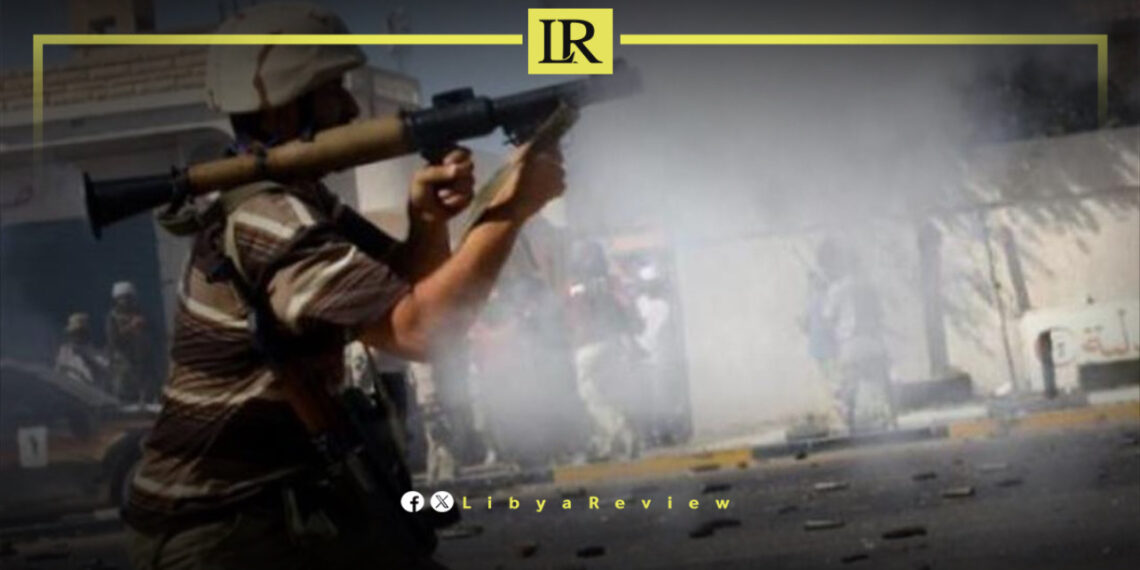Confirmed sources reported the eruption of armed clashes south of Al-Zawiya city between an armed group from Zawiya and residents of the cities of Jamil and Rigdaleen.
The clashes, involving various types of weapons, are taking place in the areas of Um Habish and Al-Aqrabiya.
Reports on the cause of the clashes are conflicting. Some sources claim they were sparked by the targeting of a citizen from Jamil and the burning of civilians’ cars from the city. Other sources suggest the clashes broke out following local protests over deteriorating security conditions.
These ongoing conflicts highlight the fragile security situation in the region, raising concerns about further escalation and the impact on local communities.
Last month, two brothers, Zakaria and Siraj Ramadan Skah, were fatally shot last night by an armed group in Al-Zawiya, Libya.
According to local reports, the incident occurred when the brothers were suddenly ambushed with a barrage of gunfire. Zakaria was killed instantly during the attack, while his brother Siraj succumbed to his injuries early this morning in the hospital.
This violent episode adds to the ongoing concerns about security in the region, where armed groups often operate with impunity. The local community and authorities are reportedly shaken by this brutal act, which underscores the volatile situation in Al-Zawiya, a city that has seen its share of violence over the years.
The loss of the Ramadan Skah brothers is a poignant reminder of the human cost of the instability that continues to plague parts of Libya. As investigations continue, there is a call for justice and for measures to be implemented to prevent such tragedies in the future.
Safety in Libya’s capital, Tripoli is continuously deteriorating, with threats of kidnapping and murder a daily occurrence for residents.
Over the years, kidnappings, arrests, and assassinations have increased substantially in western Libya. This is evident in the repeated statements of the Ministry of Interior, about the arrest of gangs and individuals involved in the kidnapping and extortion of expatriate workers.
Libya ranked fourth in the Arab world, and twenty in the world, among the countries with the highest levels of organised crime, according to the report of the Global Initiative to Combat Crime (GLOBAL INITIATIVE).
In its latest report on Libya, the foundation based its indicators on several factors, most notably human trafficking, money laundering, drug trafficking, crimes related to animal and plant life, human smuggling, and arms trade.
According to the report, Libya ranked last in the world in terms of the degree of resilience against organised crime. This reflects the inability of the state to confront the scourge of crime.
Murder has been a weekly occurrence, throughout the country. The number of extrajudicial killings in 2022 has surpassed 173 people. This is especially due to the proliferation of weapons and the inability of the security services to monopolise the possession of weapons.
Libya ranked first in North Africa, third in the Arab world after Syria and Somalia, and 25th in the world according to the crime index of the database encyclopaedia, Numbeo.
Libya recorded a 60.5% crime rate, which is considered high, while recording a 39% safety rate. During the past eight years, the crime rate in Libya lowest in 2017 at 54%, and the worst in 2015 with 70%.


